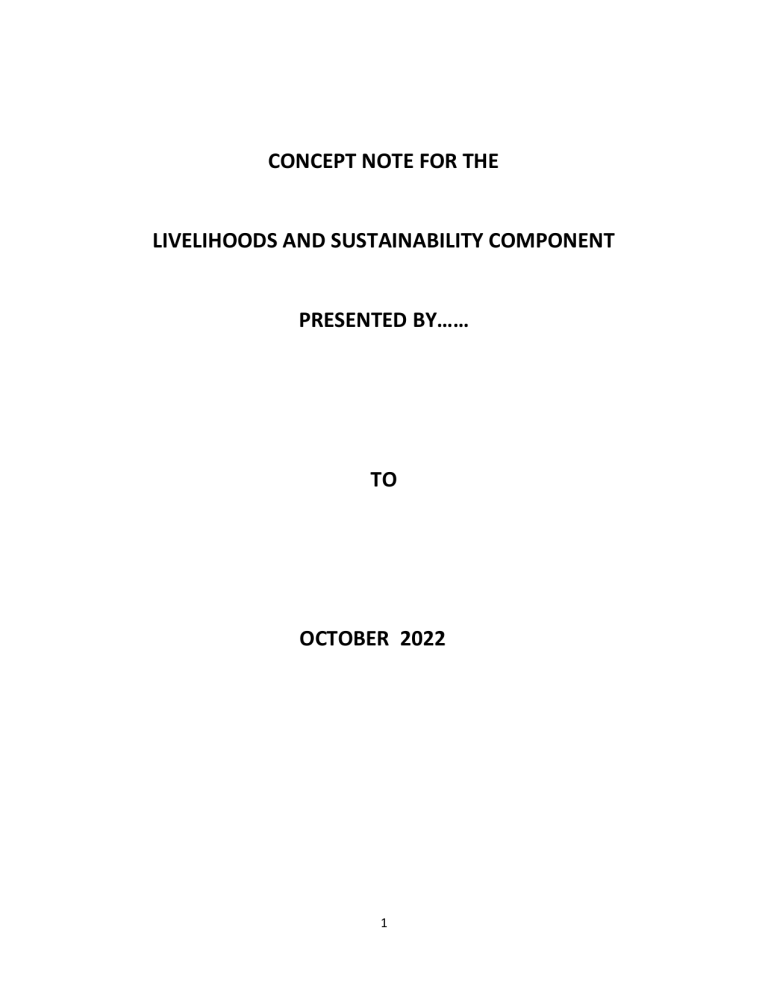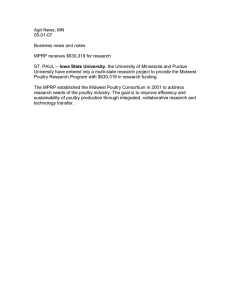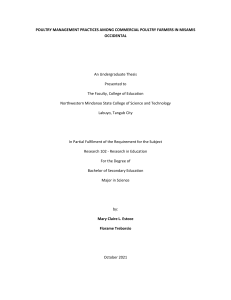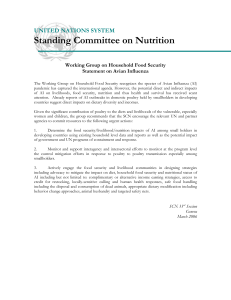
CONCEPT NOTE FOR THE LIVELIHOODS AND SUSTAINABILITY COMPONENT PRESENTED BY…… TO OCTOBER 2022 1 1.0 BACKGROUND INFORMATION Kisii is one of the counties found in South Western Kenya. It borders Migori, Homabay, Narok and Nyamira Counties. It covers an area of 1323 km2 has a population of 1,266,860 persons (KNBS 2019). Therefore the average population density is 958 persons per square kilometer. Get statistics on vulnerable groups and identify ongoing efforts as far as livelihoods and sustainability is concerned. 2.0 THE PROBLEM There is a high poverty index among vulnerable populations especially women, elderly and PLWDS. Lack of access to education and unemployment among the youth further compounds the problem. Access to funds to enable these groups to start small enterprises to be able to earn a decent livelihood is difficult. Most interventions have lacked sustainability once the period of funding expires. (Get statististical data) 3.0 OBJECTIVES 3.1 Overall objective To improve the Livelihoods of the identified groups and ensure sustainability. 3.2 (i) To improve livelihoods of the groups through increase/introduction of local poultry production. (ii) To increase income of identified groups through promoting production in the local vegetable Value Chain. 4.0 (iii) Reduce unemployment by supporting youth groups to start small enterprises. (iv) Improve access to credit facilities for the groups. (v) Impart life skills and promote access to Vocational training among the youth. SUGGESTED INTERVENTION STRATEGIES (i) Mobilize stakeholders in sections of the Poultry Meat Value and Local Vegetable Value Chains. (ii) Construct and equip a Municipal slaughterhouse for Poultry within Kisii Town (preferably through Public Private Partnership (PPP)) (iii) Construct small scale poultry slaughterhouses in every sub county 2 (iv) Create aggregation centers for Vegetable to benefit from economies of scale and better bargaining power. (v) Train the groups on advanced production techniques and expose them to farm inventions in both value chains. (vi) Leverage on existing interventions by government and other organizations. (vii) Sensitize stakeholders on meat standards agreed upon (viii) Equip Village youth polytechnics organize mentorship activities. (ix) Organize the groups and present them to a microfinance so as to leverage on an agreed upon organizational format to access Credit. 5.0 STAKEHOLDER MATRIX Stakeholder Name Role 1. 2. 3. 4. 5. 6. 7. 8. 9. 10. 11. 12. 13. 14. 15. 16. 17. 18. 19. 20. 21. 22. 23. 24. 25. 26. 3 Comment 4 6.0 IMPLEMENTATION MATRIX AND COST Activity Date Date 1. 2. 3. 4. 5. 6. 7. 8. 9. 10. 11. 12. 13. 14. 15. 5 Date Date Date Date Approximate cost (Kshs)


